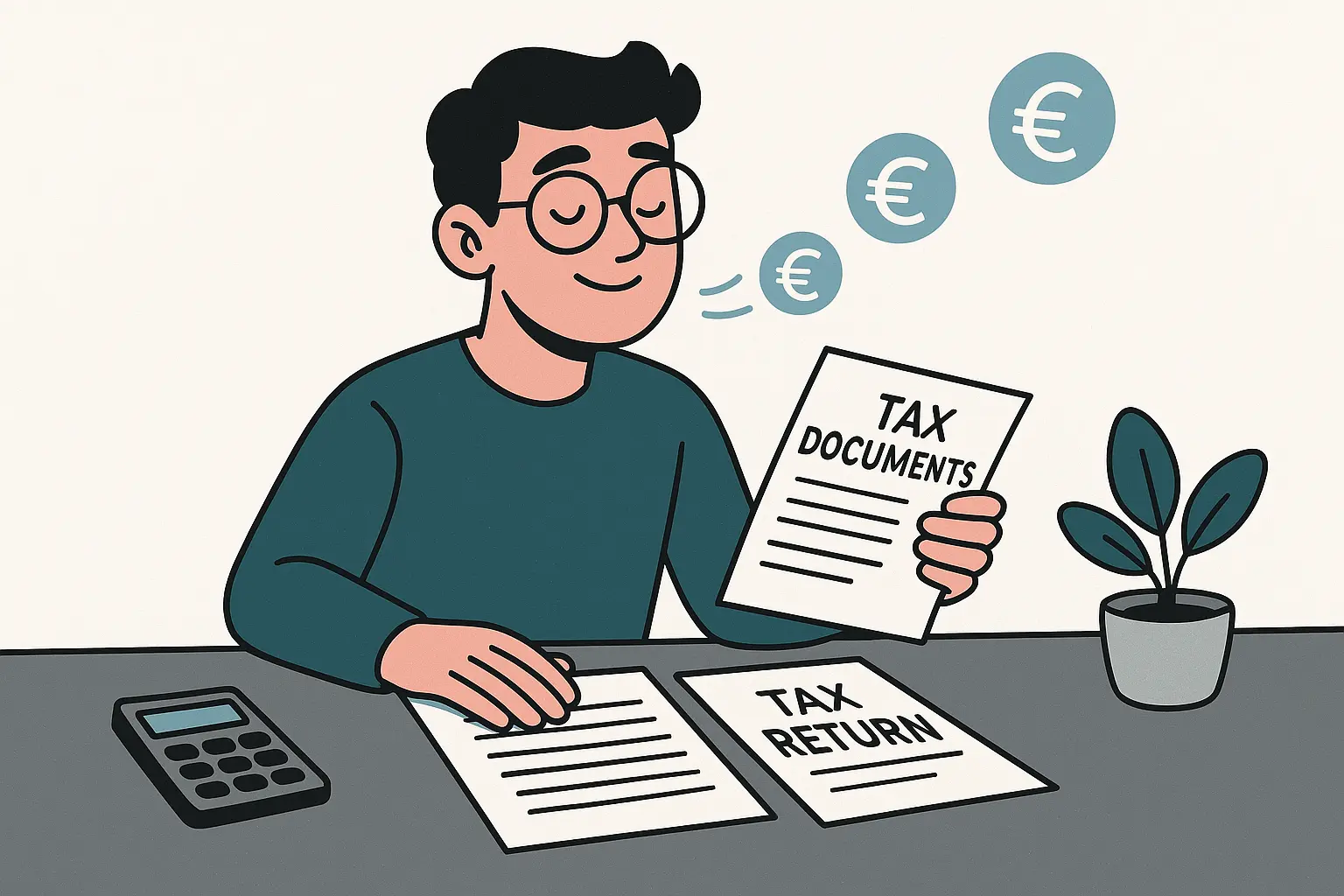This guide is for businesses that sell to customers in the European Union and it covers the basics of VAT and VAT "One Stop Shop" VAT.
Key Takeaways
- Irish VAT Thresholds: €85,000 for goods and €42,500 for services within a 12-month period.
- Registration Timing: Register with Revenue once you approach thresholds to avoid retroactive liability, but don't register prematurely and create unnecessary administrative burden.
- Cross-Border Sales: Different rules apply for B2B vs B2C sales across EU borders, with a €10,000 annual threshold for B2C sales before destination-based VAT rates apply.
- VAT One Stop Shop: Simplifies compliance for businesses selling to consumers across multiple EU countries through a single registration and return.
- Record-Keeping: Maintain evidence of customer status and location for at least six years to ensure compliance with Revenue requirements.
- Return Filing: Irish VAT returns are typically filed quarterly through ROS, with penalties for late filing.

Understanding VAT for New Founders
As a new founder establishing your business in Ireland, understanding Value-Added Tax (VAT) obligations is really important to avoid getting on the wring side of the taxman.
VAT applies to goods and services sold throughout the European Union, including digital products and physical merchandise.
When Irish Startups Must Register for VAT
The decision of when to register for VAT depends primarily on your company's turnover and business model.
In Ireland, there are two distinct VAT registration thresholds (as at 2025):
- €85,000 for businesses primarily selling goods
- €42,500 for businesses primarily providing services
However, once exceeded, registration becomes mandatory within 30 days.
In practice, it is common to register when you are approaching those figures or know that you are going to surpass them.
The Irish VAT Registration Process
Registering for VAT in Ireland involves submitting an application to the Revenue Commissioners through their Revenue Online Service (ROS).
You'll need to provide:
- Your company's legal structure and registration details
- Estimated annual turnover
- Business bank account information
- Details of company directors or partners
The process typically takes 2-3 weeks, though we've seen cases where approval comes through in as little as 5-7 working days.
Once registered, you'll receive a VAT identification number that must appear on all invoices.
Common VAT Mistakes Made by Irish Startups
In our work with founders, we've observed several recurring VAT issues:
We recently advised a technology startup that registered for VAT prematurely, six months before reaching the service threshold.
While not an error per se, it created an unnecessary administrative burden because that company was required to file VAT returns every two months from the point of registration, despite minimal input VAT to reclaim.
That founder spent valuable time preparing filings rather than focusing on product development.
With that said, if you are going to make a mistake, make sure you do it by registering too early rather than too late!
How VAT Works in Practice
To illustrate VAT in action, consider this example:
A Dublin-based furniture maker sells a handcrafted desk to a retailer for €2,000. At Ireland's standard 23% VAT rate, the retailer pays €2,460 (€2,000 plus €460 VAT). The furniture maker must report and remit this €460 to Revenue.
The retailer then sells the desk to a customer for €3,000 plus VAT, charging €3,690 total. When filing VAT returns, the retailer remits only €230 to Revenue (€690 collected minus €460 already paid to the supplier).
Cross-Border Considerations
For Irish startups selling to other EU countries, different rules apply depending on whether your customer is a business (B2B) or consumer (B2C):
The responsibility for accounting for VAT transfers to your customer under the reverse charge mechanism.
For B2C sales, once you exceed €10,000 in annual cross-border sales, you must register for VAT in each customer's country or register for the VAT One Stop Shop (OSS) scheme through Revenue.

VAT OSS: Simplifying EU Compliance
The VAT OSS system allows Irish businesses to file a single quarterly return covering all EU sales, rather than registering separately in each country.
This significantly reduces administrative complexity for startups expanding across Europe.
Through Revenue's OSS portal, you report sales by country and apply the appropriate VAT rates.
Revenue then distributes collected VAT to the respective member states automatically.
Documentation Requirements
Proper record-keeping is essential. You must maintain:
- Valid VAT invoices for all transactions
- Evidence of customer location for digital sales (at least two data points such as billing address and IP location)
- Records of all VAT returns filed
- Supporting documentation for cross-border transactions
These records must be retained for six years in Ireland, though other EU jurisdictions may require longer retention periods.
Filing VAT Returns
In Ireland, VAT returns are typically filed bi-monthly (every two months), though newly registered businesses may initially be placed on monthly filing. You must report:
- VAT charged on sales (output VAT)
- VAT paid on purchases (input VAT)
- The net amount due to Revenue
Returns must be submitted and payments made by the 23rd day of the month following the end of your taxable period. Late filing or underpayment can result in interest charges of 8% per annum and potential penalties of up to 10% of the VAT due.
Conclusion
While VAT compliance involves administrative effort, establishing proper procedures early saves significant time and resources as your business grows.
Consider consulting with a tax advisor experienced in startup operations before making registration decisions, as strategic timing can optimise your cash flow and administrative overhead.

Stuart Connolly is a corporate barrister in Ireland and the UK since 2012.
He spent over a decade at Ireland's top law firms including Arthur Cox & William Fry.






